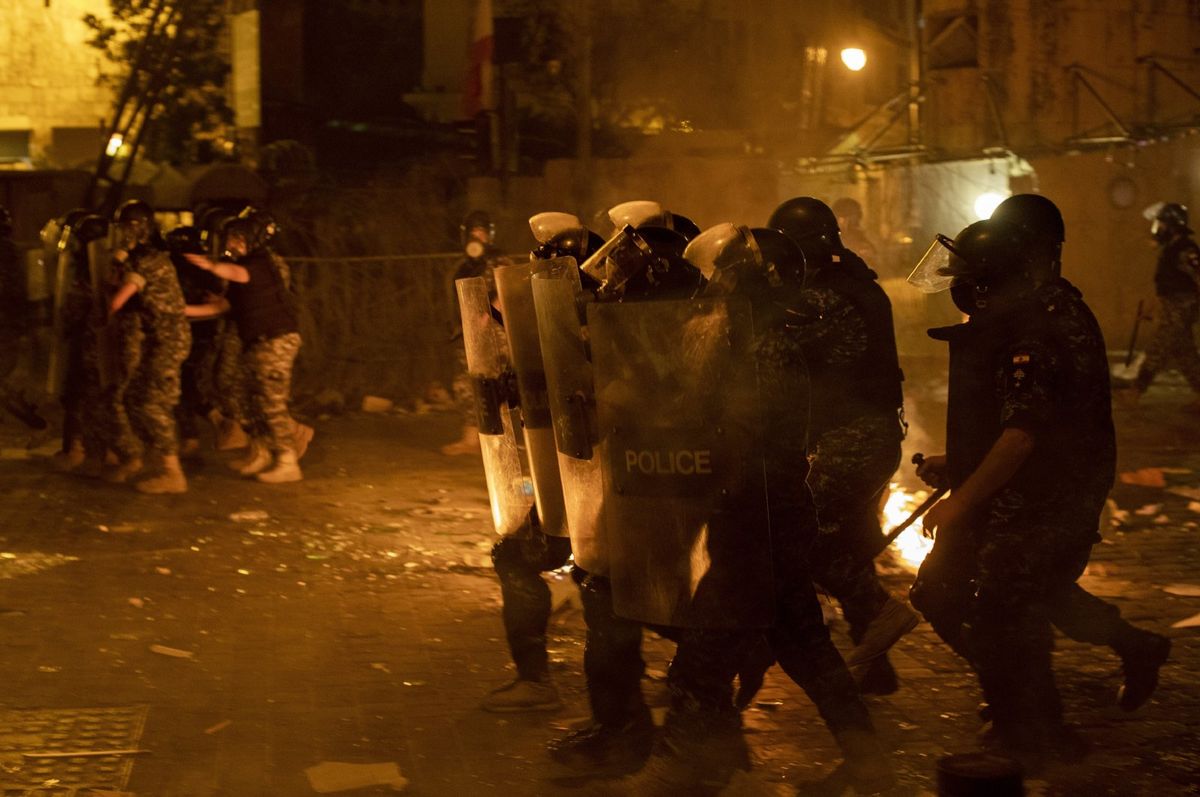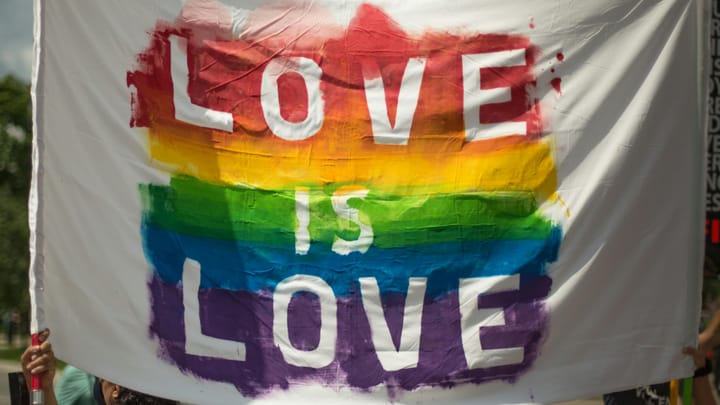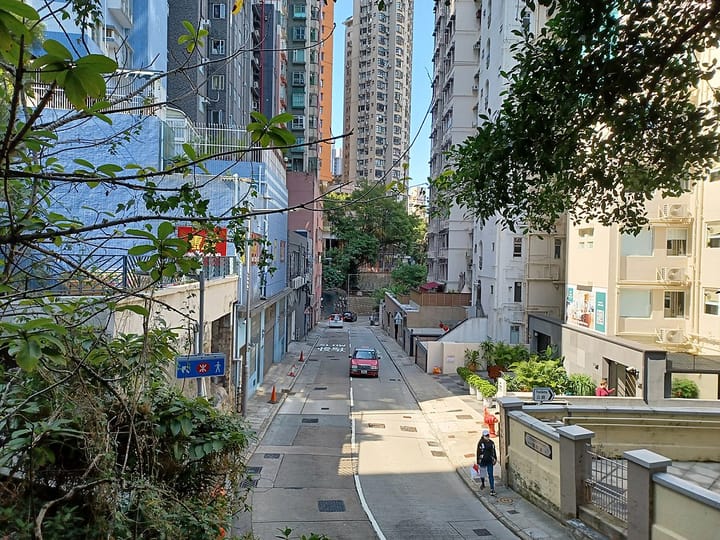Protests break out in Beirut as anger grows over blasts

A few minutes every morning is all you need.
Stay up to date on the world's Headlines and Human Stories. It's fun, it's factual, it's fluff-free.
Violent protests broke out in Beirut over the weekend as public fury grew following two massive explosions that devastated Lebanon’s capital city last week, killing at least 158 people and injuring over 6,000.
Approximately 10,000 people converged on Beirut’s Martyrs’ Square and Parliament Square, which later turned into a battleground as evening fell.
Protesters stormed government ministry offices and banks where they clashed with riot police for hours at a time, fighting tear gas and rubber bullets with rocks and firecrackers.
One police officer died at the scene when he fell into an elevator shaft while being chased by protesters. The Red Cross reported that at least 175 people were treated for injuries on the scene and another 63 were taken to hospital.
Investigations into the cause of last week’s explosion suggest that it was most likely caused by a cache of 2,750 tonnes of ammonium nitrate, a highly combustible chemical commonly used in fertilizers and bombs, which had been allegedly improperly stored at the Beirut port for six years.
The disaster has cost an estimated US$15 billion in damages and left hundreds of thousands homeless, stoking widespread public anger in a country already reeling from both an economic and public health crisis.
“Resignation or hang"
Nooses were set up along the streets of Beirut’s Martyrs’ Square and outside the port as a symbolic warning to politicians to face hanging for their crimes of corruption and negligence.
“Every leader who oppresses us should be hanged,” said protester Sabir Jamali, as banners reading “Resignation or hang” were waved by protesters near the mock gallows.
Several protesters broke into the foreign ministry office where they burned a portrait of President Michael Aoun.
“What else do you want? You brought us poverty, death and destruction,” shouted one protester on the street among a crowd echoing similar statements.
“We gave these leaders so many chances to help us and they always failed. We want them all out, especially Hezbollah, because it’s a militia and just intimidates people with its weapons,” said Walid Jamal, an unemployed demonstrator, referring to the Iran-backed armed grouping with ministers in the Lebanese government.
The US Embassy in Beirut tweeted support for demonstrators and their right to protest peacefully, but urged them to refrain from violence.
“The Lebanese people have suffered too much and deserve to have leaders who listen to them and change course to respond to popular demands for transparency and accountability,” the embassy tweeted.
In response to the growing pressure placed on the country’s politicians, Lebanese Prime Minister Hassan Diab said that he would request that parliamentary elections be held early.
“We cannot get out of this crisis without early parliamentary elections,” he said, before adding that he was not to blame for the economic and political crisis.
Several other ministers and parliamentarians have stepped down following the public backlash over the weekend.
“I want to apologize to the Lebanese people, whose aspirations we were unable to fulfill due to the difficulty of the challenges facing us,” said former Information Minister Manal Abdel Samad.
However, despite some stepping down, the push for Diab’s entire cabinet to resign continued, with Lebanon’s top Christian Maronite cleric, Bechara Boutros al-Rahi, saying “It is not enough for a lawmaker to resign here, or a minister to resign there.
“It is necessary, out of sensitivity to the feelings of the Lebanese and the immense responsibility required, for the entire government to resign, because it is incapable of moving the country forward,” he said.
Macron shines
While many Lebanese denounced their country’s leaders, who were notably absent from cleanup efforts around the city and refraining from visiting the blast site, French President Emmanuel Macron received widespread praise for his response to the disastrous explosions.
Macron flew from Paris to visit the port on Thursday and fronted an emergency international donor conference on Sunday with the United Nations in an effort to provide financial aid for the struggling Lebanon, with nearly US$300 million collectively pledged by a host of countries and international leaders to go towards humanitarian relief.
“The Lebanese authorities must now implement political and economic reforms demanded by the Lebanese people and which alone will enable the international community to act effectively alongside Lebanon for reconstruction,” said Macron.
For Lebanese residents, this was a show of much needed leadership even as their own government was deemed by many locals as inept and corrupt.
“Macron offered to help and our government has not done anything. It has always been like that,” said one Lebanese resident.
“After Macron visited I played the French national anthem all day in my car.”
Have a tip or story? Get in touch with our reporters at tips@themilsource.com




Comments ()